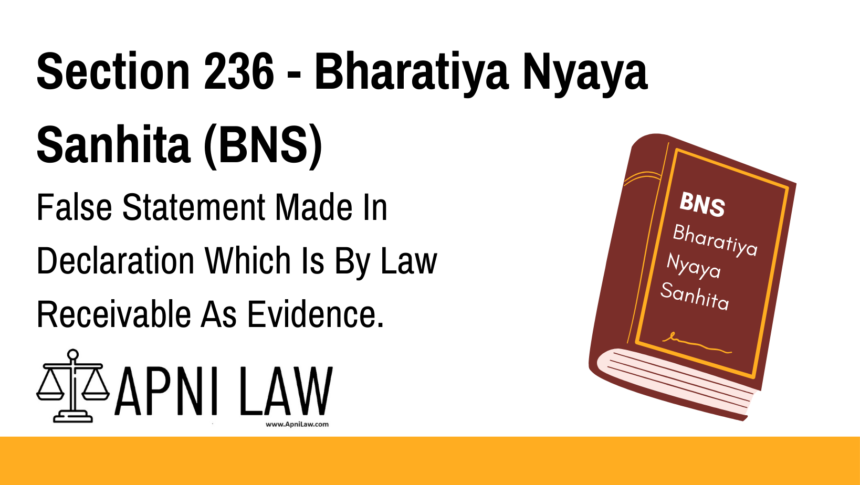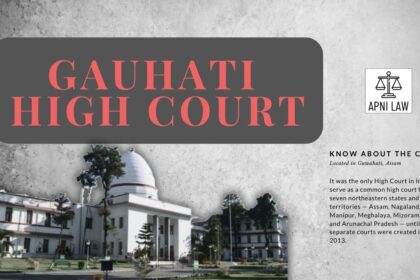Code: Section 236 BNSS
Whoever, in any declaration made or subscribed by him, which declaration any
Court or any public servant or other person, is bound or authorised by law to receive as
evidence of any fact, makes any statement which is false, and which he either knows or
believes to be false or does not believe to be true, touching any point material to the
object for which the declaration is made or used, shall be punished in the same manner as
if he gave false evidence.
Explanation of Section 236 BNSS
Section 236 of the Bharatiya Nyaya Sanhita (BNSS) penalizes individuals who knowingly make false statements in declarations that are legally receivable as evidence. This ensures the integrity of judicial and administrative processes by treating such false statements as equivalent to perjury.
Key Elements of Section 236 BNSS:
- Applicability: The section applies to declarations made before a court, public servant, or any person legally authorized to receive evidence.
- False Statement: The declaration must contain a statement that is knowingly false or believed to be false.
- Materiality: The false statement must relate to a material fact essential to the object of the declaration.
- Punishment: The offender is subjected to the same penalties as perjury or giving false evidence under BNSS.
Illustrations
Example 1: False Declaration Before a Court
A witness submits an affidavit in a civil suit falsely claiming that he was present at the scene of an accident when he was not. Since the affidavit is a legally receivable declaration, the witness is punishable under Section 236 BNSS.
Example 2: False Statement in a Government Document
A person applies for a government benefit and falsely declares his income to be below the eligibility limit. As the declaration is made to a public servant and legally receivable as evidence, the person is liable under Section 236.
Example 3: Misrepresentation in Business Agreements
An individual provides a notarized declaration falsely stating that a property has no pending legal disputes. If the declaration is legally receivable as evidence, he can be punished under Section 236 BNSS.
Common Questions and Answers on Section 236 BNSS
1. What is the primary objective of Section 236 BNSS?
The objective is to prevent false declarations in legal and administrative matters by penalizing individuals who knowingly make untrue statements in declarations legally receivable as evidence.
2. What kind of declarations are covered under Section 236?
Declarations made before a court, public servant, or any legally authorized person, including affidavits, sworn statements, and official declarations.
3. How is a false statement under Section 236 punished?
The punishment is the same as for giving false evidence (perjury) under the BNSS, which may include imprisonment, fines, or both.
4. Can a person be prosecuted under Section 236 for an unintentional mistake?
No, the law applies only when the false statement is knowingly made, meaning the person was aware that the statement was untrue or did not believe it to be true.
5. Is Section 236 BNSS applicable to both criminal and civil matters?
Yes, as long as the false statement is made in a declaration that is legally receivable as evidence in either a civil or criminal proceeding.
Conclusion
Section 236 BNSS plays a crucial role in ensuring the credibility of legal declarations. It penalizes individuals who knowingly submit false statements in legally recognized declarations, thereby safeguarding judicial and administrative processes.
For more insights on legal provisions, visit ApniLaw! 🚀








